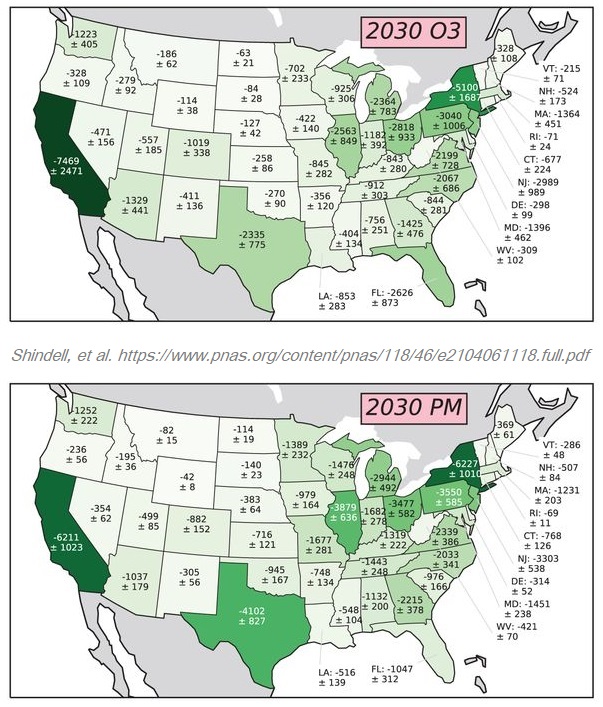Researchers from Duke University, NASA, and Columbia University, looked at what would happen to health, the economy, and climate if we reduce emissions more, some, or not at all, starting now. They looked at health and economic benefits for dates from now through 2070.
They found that if we reduce emissions enough to meet the Paris Accord climate goals of 1.5 degrees Celsius, by 2030 (a few short years from now) we could prevent 125,000 deaths, the US would save $7 billion in health costs, prevent 6.7 million lost work days which saves us $1.3 billion, and boost agriculture production by $2.3 trillion. They found that two thirds of the benefits the U.S. would see would come from reducing our own air pollution and greenhouse gases.
They also have a calculator to see the benefits in each state. For example, in Georgia, if we reduce emissions enough to meet the 1.5C Paris Accord climate goals, in just 10 years there would be 3600 fewer deaths from ozone and fine particles (PM2.5), prevented 230,000 lost work days, and agricultural yields would increase by $22 million. See what benefits could happen in your state here.
The researchers were able to look at many more health benefits than previously: heart and lung disease, strokes, dementia, and bronchitis. They also looked at economic benefits: increased bushels of corn, wheat, rice, and soybeans.
The reasons the health benefits in 2030 are so large, is because when we burn fossil fuels, we not only put carbon dioxide (CO2) in the air and make climate change worse, we also create lots of other air pollution, such as particulates, sulfur dioxide, and nitrogen oxides (NOx). NOx also makes ozone air pollution. Air pollution is linked to premature death, and many health problems including lung and heart conditions, strokes, dementia, and many others. Air pollution also is a big brake on the economy: lower crop yields, people work slower and produce less, and people miss more days of work.
When we reduce air pollution, we help avoid disastrous climate change, and we also get immediate benefits: health, agriculture, improved productivity and a better economy.
Read the NASA news report about the study here.
Read the scientific article in the Proceedings of the National Academy of Sciences (PNAS) here. https://www.pnas.org/content/118/46/e2104061118
11/22/2021





